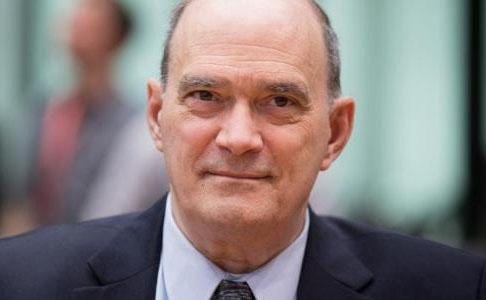Elon Musk Flies Into a Stellar Wind
A question I can't answer
Headline from yesterday that qualifies for a “well that’s half of an interesting thought” award:
The story goes on:
The former professor and author of "The Age of Surveillance Capitalism," Shoshana Zuboff, said huge ad revenue and unregulated data collection about user behavior have changed the social-media industry, which now holds incredible sway over real-world events….
Putting that power in the hands of a single person, she said, would be "incompatible with democracy."
But putting it in the hands of a single corporation is totally cool, ‘cause that’s different.
Remember that we used to talk about Room 641A, the NSA collection facility in an AT+T building in San Francisco, and other facilities like it in telecomm buildings around the country, and about the Bush administration’s Stellarwind communications surveillance program, and about the ways the NSA crunches the communication data it collects.1 We used to have an ongoing national discussion about the way the intelligence agencies hoover up our communications. Odd how much that discussion has faded away lately.
So my suspicion is that some portion of the freakout about Elon Musk’s bid to buy Twitter and take it private has to do with unregulated data collection about user behavior and who currently has the ability to do such a thing. Is there a Room 641A at Twitter, and would a new owner find out about it?
But Part Two is that they may not actually need one. Unprompted, Bank of America dug through customer data and sent the FBI a list of people who used debit cards near the Capitol on January 6. Corporations, or at least some of them, have clearly come to regard themselves as partners of a politicized national security state. The angst over Elon Musk and Twitter has to do with the fear of a disrupted narrative-making machine, but I have to wonder if he’s also threatening a corporate-state partnership that we don’t know about.
Regarding that last link, I find Barton Gellman a very strange figure — a brilliant analyst, a dogged reporter, and weirdly misguided and monomaniacal about the politics of the questions he raises. He consistently sounds the warning about the authoritarian monster Trump and how that bastard might abuse the power that comes with control of intelligence agencies which collect massive quantities of domestic communications, but how do you not notice the remarkable ironies in that set of fears?



About your note about Bank of America. After the Canadian trucker brouhaha, I wrote my bank's CEO, asking if they would follow such an order issued by either the Biden administration for anybody who did business with anyone organizing or supporting January 6, or a future Republican administration doing the same for Black Lives Matter and Antifa. I noted that I had earned all of 10 cents last month off my savings of quite a few thousand dollars, so keeping it in the bank rather than under my mattress would only buy me a downpayment on a candy bar even though inflation is currently raging like a brush fire. The CEO, if he ever saw it, sent it to the PR department who took 2 weeks to respond that they follow all laws and would not speculate on anything that might happen in the future. Veeeeery reassuring. ;) Much as I am sympathetic to Ukraine, I find the immediate mob attacking anything remotely Russian very disturbing. Also the near instant freezing of all accounts and of doing business with Russia only reinforces my worries about my own accounts should I do something that someone in power deems unacceptable.
Bitcoin is looking more attractive, but you have to keep it yourself rather than go through a broker or you're just as screwed as with your bank. Also it relies on access to electricity and your own ability to secure your account from others and from potential hardware failures.
As to your main point, it's well known by security experts that you have no privacy online, zilch. Your only hope is in not attracting the attention of those who might wish you ill.
I've just assumed since the early aughts that everything I do online, no matter what provisions I take to protect my privacy, is immediately sucked into the state surveillance apparatus and fed into some giant agent-based AI model of global society. In the age of the smartphone that includes basically everywhere I go and everything I say ... and the bugging device half of things at least is true even for those who don't have phones, because everyone around them is carrying one.
With some exceptions, it seems that this data isn't used to much to persecute individuals as it is to monitor public sentiment. That suggests that the worst thing everyone could do is stop speaking their mind online, because that would send a false signal to the security state that it's go time for full technocratic dystopia. Much better if there's a constant background of disaffected grumbling that keeps the bastards up at night worried about torches, pitchforks, AR-15s, show trials, and mass hangings.